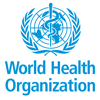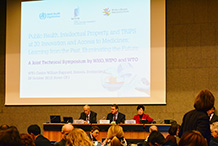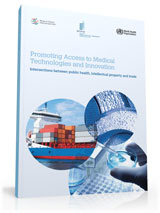MORE:
> Roberto Azevêdo’s speeches
> WHO, WIPO, WTO cooperation
See also:
> Other WHO-WIPO-WTO joint technical symposiums
Excellencies,
Ladies and gentlemen,
Welcome to the WTO — and to this Joint Technical Symposium by WHO, WIPO and WTO.
I am honoured to be joined by:
- Dr Margaret Chan, Director-General of the World Health Organisation, and
- Francis Gurry, Director General of the World Intellectual Property Organization.
It is a pleasure to have you both here.
This event is part of the increasingly close cooperation and dialogue between our three organizations. It builds on other initiatives, such as the trilateral study on Promoting Access to Medical Technologies and Innovation in 2013.
The adoption of the new Sustainable Development Goals last month helps to bring this into focus. For example, SDG 3 on good health and well-being looks at access to affordable essential medicines and vaccines, as well as the research and development of these elements.
These are features that intersect in all of our areas of work. And I think this underlines our common responsibilities as member-driven, international organizations.
TRIPS
This is certainly a priority for the WTO.
Trade and the multilateral trading system can help in creating a more favourable global environment for public health policies and the implementation of a balanced and effective intellectual property system.
And I think a look at our history bears this out.
As you know, 2015 marks the WTO’s 20th anniversary — and the 20th anniversary of the TRIPS Agreement.
The TRIPS Agreement introduced substantive and comprehensive disciplines on intellectual property rights into the multilateral trading system. And it impacted deeply on national intellectual property rules across the world.
It is a key tool for balancing the need of ensuring fair access to medicines, while also supporting the necessary innovation.
In these 20 years, over 130 WTO members have notified IP laws and regulations under TRIPS — and they have shown considerable diversity in how they have applied the broad principles of the Agreement.
And understandably, TRIPS has been an important feature of any debate about innovation and access to medicines.
This became even clearer in 2001, with the Doha Declaration on the TRIPS Agreement and Public Health.
With this Declaration, WTO members reaffirmed that TRIPS can — and should — be part of the solution in tackling the public health challenges that confront developing countries. And they identified flexibilities in TRIPS as an important instrument in enabling access to medicines.
Moreover, members agreed to add a new flexibility to the Agreement. They adopted a waiver that enabled the export of lower cost generic medicines to countries which could not produce the medicines themselves.
Led by African countries — and with unanimous political support — members subsequently decided that this issue was too important for just a waiver. They decided to provide a permanent legal instrument.
And so, in 2005, it became the first amendment agreed to the WTO’s rulebook.
Two-thirds of the membership has to confirm acceptance before the amendment comes into force. Around half of our members have already taken this step and we need 21 more acceptances to meet the threshold amount.
I have been campaigning to get us across the line and bring this important measure into effect. So once again I urge members to take action on this point.
And it’s important to note that this amendment does not require members to take on any new obligations — precisely because it concerns a new flexibility, not a new obligation. It simply means that they affirm the right of all members to use this legal protection if and when they wish to.
BROADER WORK OF THE WTO
The work of the WTO also touches on public health issues in a broader sense.
The world is more connected than ever before, and this is no different for trade in medicines and related technologies.
Worldwide imports of pharmaceutical products exceeded half a trillion dollars last year.
Trade in electro-medical apparatus — such as ultrasound and MRI equipment — exceeded 100 billion dollars.
So impediments to trade — be it uncoordinated customs processes, or high trading costs — can be more than just an economic burden. They can be a drag on public health, delaying access to these goods and adding to their cost. This is a very serious issue — and one which deserves our attention.
Implementing the WTO’s Trade Facilitation Agreement can be an important step in that direction.
In a nutshell, this Agreement will help to expedite the movement of goods across borders. It aims to simplify customs procedures, increase transparency and limit fees and charges. Estimates show that full implementation of the Agreement could reduce trade costs by an average of 14.5%.
This can have a big impact across the board — including for access to medicines.
For example, the Agreement contains provisions for expedited handling of perishable goods, which is vital in the cold chain management and transportation of medicine, such as vaccines.
So this Agreement can bring a lot to the table.
And, of course, there are many other examples that show the impact of trade policy here.
Barriers to trade, from tariffs to standards and regulations, impact the costs and competitiveness of producers. They also affect the choices, prices and information available to consumers — and patients.
So an important part of our job here is to offer a place for dialogue on these subjects, and to increase transparency.
Some WTO committees, for example, deal with very sensitive standards and regulations, such as levels of toxins in food, caffeine labelling on energy drinks, or test procedures for medical devices and pharmaceuticals.
Some WTO disputes have touched upon related issues — for example, looking at policies to discourage tobacco consumption, or packaging information for consumers.
In addition, in many national health systems, access to medicines is supported by public funds, often through public procurement.
The WTO’s revised Agreement on Government Procurement addresses this sector, promoting transparency and good governance in public procurement activities.
Parties to this Agreement have agreed to bind their central health related agencies to these provisions, ensuring that medicines are obtained via a competitive and transparent procurement process.
So I think this illustrates how prominent health is in our agenda.
CONCLUSION — TRILATERAL COOPERATION
But of course trade policy is just one element in supporting better public health.
The World Health Organization is the lead multilateral agency on public health, and a key source of international health expertise.
And the World Intellectual Property Organization plays an essential role as the global forum for intellectual property policy, information and cooperation.
So I think we can benefit in countless ways from each other’s expertise in each of our respective fields.
We cannot move ahead and tackle these important issues without the adequate data and know-how.
Between our three organizations, we have access to a tremendous pool of resources and expertise. So we need to put that into good use, and improve the coherence and consistency of our work.
This is what this symposium is all about. And this is a very important discussion.
I am sure that presenting work and sharing ideas in forums like this can spark new thinking in many ways.
Our three organisations are dedicated to creating a stronger and more stable global framework — so that people around the world can lead better and healthier lives.
We can’t do any of that without the necessary research, ideas and evidence — much of which comes from the brain power in this room.
So I wish you a very successful day.
Thank you for listening. I will now hand the floor to Dr Chan.
> Problems viewing this page?
Please contact [email protected] giving details of the operating system and web browser you are using.





